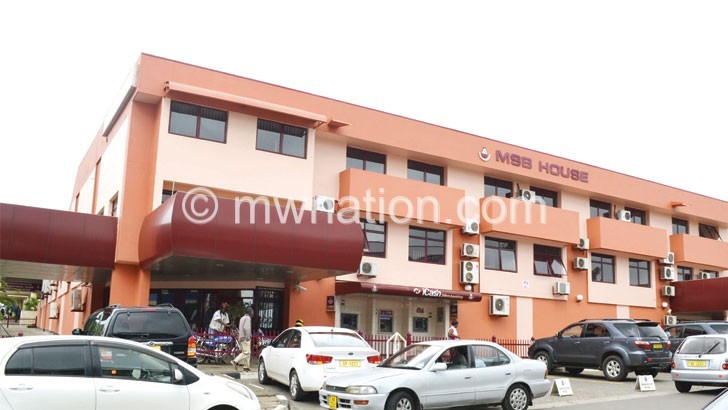Dispute freezes MSB sales money
Proceeds from the sale of Malawi Savings Bank (MSB) have earned an additional K1.5 billion but government cannot use the money before the buyer’s claim that the bank was over-valued is resolved, Weekend Nation has learnt.
Finance Minister Goodall Gondwe said on Wednesday when FDH Financial Holding Ltd bought 75 percent of the shares in MSB at K9.5 billion in July 2015, the proceeds were invested in Treasury Bills.
“The money is now K1.5 billion more, but we cannot start using it now because FDH says we owe them money and we want to settle that issue first,” Gondwe said.
He said when the dispute is resolved; some of the earned money will be paid to the Public Private Partnership Commission (PPPC), an agency that invested the proceeds after conducting the sale on behalf of the government.

Government sold 75 percent of its shares in MSB to FDH at K9.5 billion on July 2 2015. The package comprised K5.4 billion for the three-quarters of the shares, K3.2 billion as capital subscription for Basel II requirements and K900 million in information communication technology (ICT) investments.
At the same time, government also sold 67.05 percent of its shares in Indebank to the National Bank of Malawi at K6.7 billion.
Of the remaining 25 percent of MSB shares, five percent is for the bank’s employees while government retained 20 percent which could be floated to the public through an initial public offering (IPO) on the Malawi Stock Exchange if the bank can churn out profits over the next three years as listing requirements dictate.
Said Gondwe: “This will not be an easy issue to settle, because FDH could have known this before the actual due diligence.”
A forensic audit by FDH Internal Audit Department dated October 15, 2015, found that K1.2 billion was only written off in MSB’s financial statements for the year ended December 31 2014, yet it originated in 2012.
FDH’s review of the statement for Mulli Brother’s loan account showed that as at March 31 2015, the loan balance was around K8.5 billion. But in his April 2015 letter to Treasury, MSB chief executive officer Ian Bonongwe only stated that of the bank’s K6 billion toxic assets, around K5 billion was for Mulli Brothers.
Bonongwe explained to the forensic auditors the discrepancy between the said value of the toxic assets and the loan account balance was due to how the definition of toxic assets was coined and applied to represent the portion of the loan deemed uncollectable on account of under secularisation; hence the K5 billion represented the unsecured portion of the loan that was why it was the only part that was reported to Treasury.
When FDH discovered the anomaly, it submitted two claims to government totalling K2.4 billion, one for K1.2 billion and another for suppressed exchange losses amounting to K1.2 billion.
FDH claims that MSB management concealed a loss of around K1.2 billion and understated Mulli Brothers Group loan balance by at least K3.5 billion. It says the alleged misinformation on the bank‘s financial position propped-up MSB’s balance sheet and profitability levels, leaving the group short-changed in the deal.
“These claims are in line with the warranties contained in the Sale and Purchase Agreement between FDH and PPPC,” said head of marketing at FDH, Sobhuza Ngwenya, in an email response yesterday.
He said there has not been much progress on the matter, but FDH will continue to engage the government through the Ministry of Finance and hoped government is also consulting internally.
Ngwenya said: “The Malawi Government and FDH are partners and shareholders in FDH Bank [merged with MSB] and we enjoy excellent relationships. FDH is committed to recapitalising the bank in line with agreements and undertakings to both Government and [the] Reserve Bank of Malawi.
“At the right time we will inform the nation accordingly but not later than 30 June, 2017. How Government responds to these warranty claims will have a significant impact on the Government’s residual shareholding in FDH Bank, as we inject new capital into the Bank.
In 2015 government issued promissory notes for the K6.1 billion toxic assets to prop up MSB’s balance sheet—forcing the taxpayers to repay loans obtained by private sector players.
In the same year, government also set up a Special Purpose Vehicle to recover the K6.1 billion from Mulli and 12 other individuals and private firms, but no progress has been made yet due to red tape in rolling it out. n





